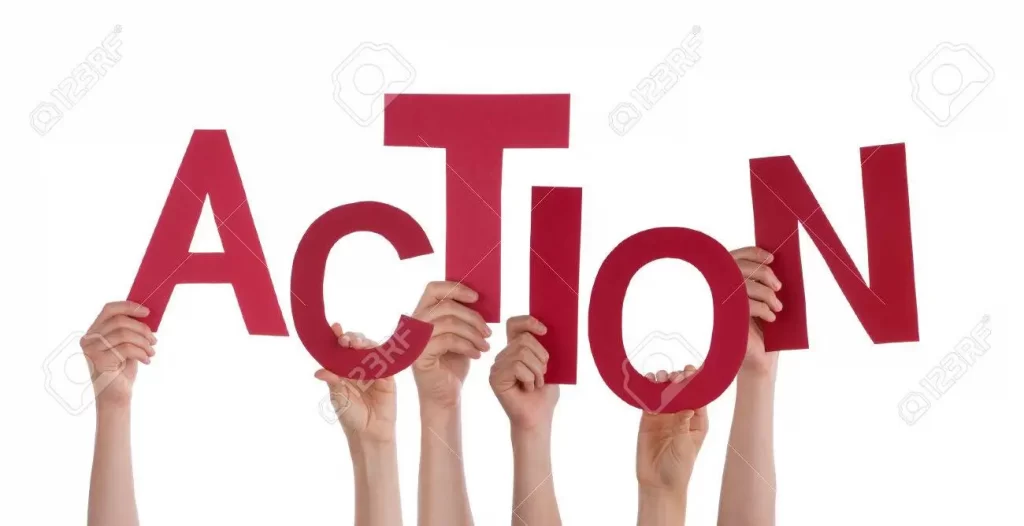Accountability is a word that is often thrown around but not properly understood. It’s defined as, “An obligation or willingness to accept responsibility or to account for one’s actions.” What does that mean, exactly?
Accountability means owning up to both actions and inaction. You’re just as much responsible for not doing something as you are for doing something. So, really, accountability comes down to taking responsibility for your decisions but what does taking responsibility mean?

When you make a decision, you are aware of the consequences of that decision. Consequences can be both good or bad. Think about it for a moment. If you decide to make a lifestyle change and you stick to that change, the consequences will be a healthier, fitter, and happier you. If you regularly make poor diet choices and skip workouts in favor of staying in bed, the consequences are likely going to be weight gain, poor health, and being unfit.
Accountability means taking responsibility for the decisions you make and the consequences that come with them. It means not making excuses. The moment you start making excuses, you are sabotaging your efforts to reach your goals and you’re not fostering the mental and emotional strength you need to transform your life. The moment you say ‘but’, you’re making an excuse, not taking responsibility. Here’s putting accountability into perspective.
You have contemplated adopting a healthier lifestyle, prepared for it properly, and started taking action. It’s going well for a week or two and then things start to slip. You don’t feel like getting up early to fit a workout in. “But I was having a hard week and I was tired.” You didn’t feel like going to the store for fresh groceries to cook a healthy meal so you ordered takeout instead. “But I didn’t have the time or energy to prepare a healthy meal.”
In this scenario, you’re making excuses for not sticking to your changes. You’re convincing yourself that you were justified in your decision to not workout or eat healthily. The problem is that this so easily becomes a habit over time. Eventually, your lifestyle is right back to where it was and you feel like you’ve failed. The worst part is you’ve convinced yourself the failure is out of your control because all your choices were justified and you really couldn’t do it.
Of course, there are always exceptions to the rules and legitimate reasons come between you and the commitments you’ve made to yourself. You shouldn’t beat yourself up over not exercising when you’re sick, for instance, and emergencies are called emergencies for a reason, otherwise, they’d be called conveniences. The point is, at the end of the day, you are responsible for whatever decision you make and unless you hold yourself accountable for those decisions, your lifestyle isn’t going to change.
Excuses are easier to make than the effort needed to make lasting lifestyle changes by developing new, healthier habits. Taking the easy way out is, well, easy, but the consequences may not be as easy to live with in the bigger scheme of things. So, now that you know how accountability affects successful lifestyle change; how do you develop your personal accountability to ensure you reach your goals and don’t just keep going as you have been before?
Think about how important changing your lifestyle is to you. If something is truly important to you, you’re not going to allow your life to be ruled by excuses. The less important your goal is to you, the easier it is to shirk responsibility for it. Desire is a powerful motivator. You have to REALLY want something otherwise you’re not going to work hard to get it.
Figure out your why. Why are you making these changes? Along with desire, why is a hugely motivating factor in any decision. If the reason you want to lose weight is fleeting, say you want to fit into a size smaller dress for an occasion, you may decide the why isn’t as important as you first thought it was. If your why is a long-term goal, like leading a healthy life so you can be around to watch your children or grandchildren grow up, the reason you’re transforming your lifestyle never goes away and you’re constantly motivated.
Every time you feel like making an excuse for a decision, stop and think about why you’re really making that decision. Be honest with yourself, without indulging the excuse. Are you really too tired or do you just not feel like it? Are you really hungry for a snack or are you just bored, feeling stressed, upset, etc.? Dig deep to find the truth behind why you want to make the decision that will negatively impact your resolve to live a healthier lifestyle and then go back to your why and how important reaching your goal is to you for motivation to make the right choice.
Think about how you’ll feel if you go through with your decision. Are you going to feel guilty and like you need to beat yourself up and punish yourself for that choice? Are you going to regret this one decision 10 minutes, an hour, a day, a week later?
How easy does it feel to make an excuse so you can make this decision? How often have you done this in the past? Has it been a barrier to your success before? If you keep making the same decision over and over and it becomes a habit, how are you going to feel a year down the line?
What are the consequences of making this decision? How do you feel about those consequences? Are the consequences enough to make you think twice about this decision?
This method of building accountability can be applied to any area of your life. To build accountability means applying the same principles across the board to all areas of your life. You can’t be accountable in one area and not in another. It’s a holistic concept.
Now, ask yourself this, are you accountable? If your answer is ‘no’, do you want to be accountable? If you answered ‘yes’, what are you going to do today to increase your personal accountability for the actions or inaction that directly affects your happiness?






